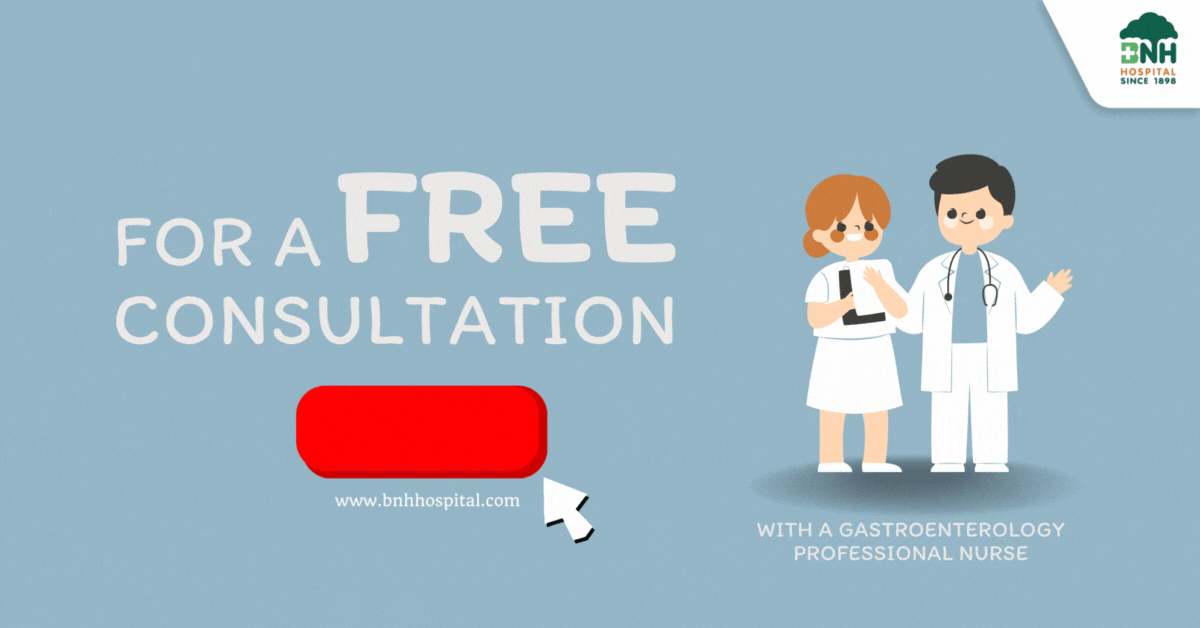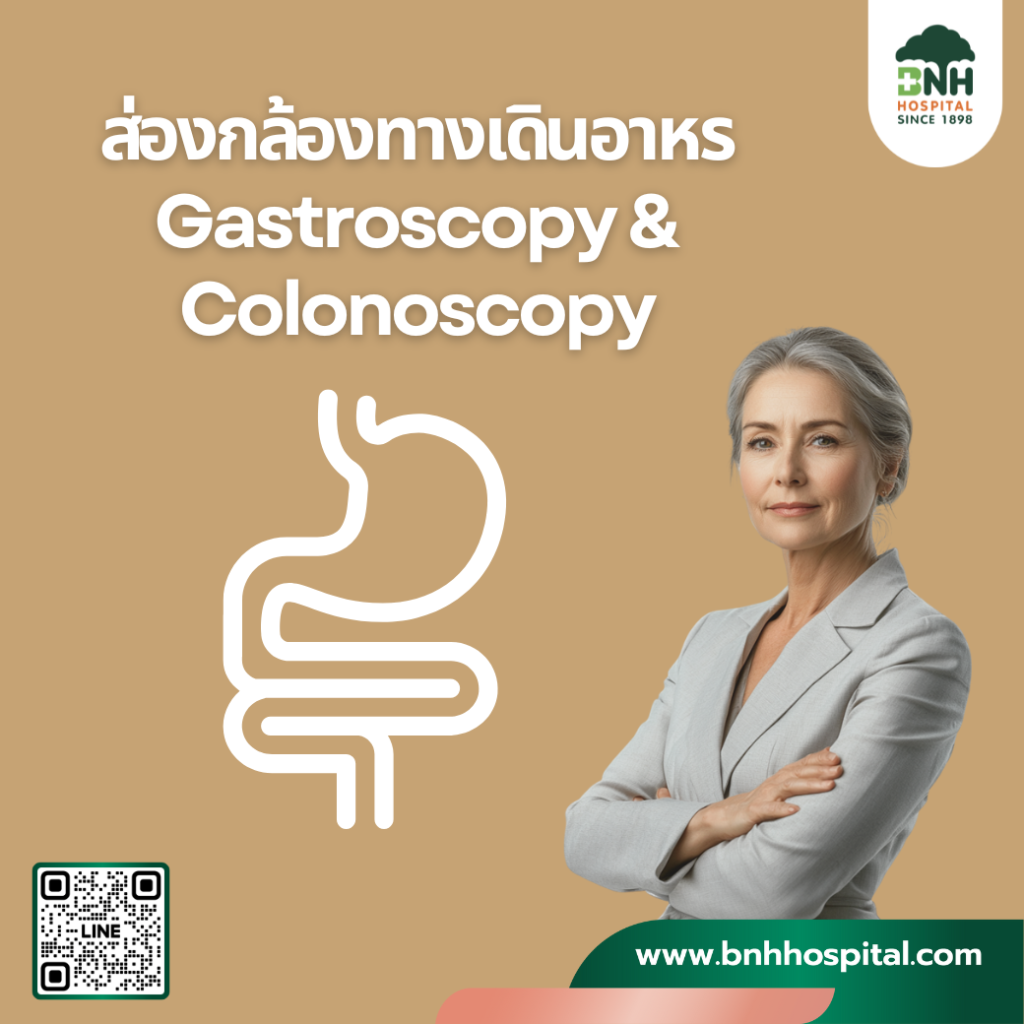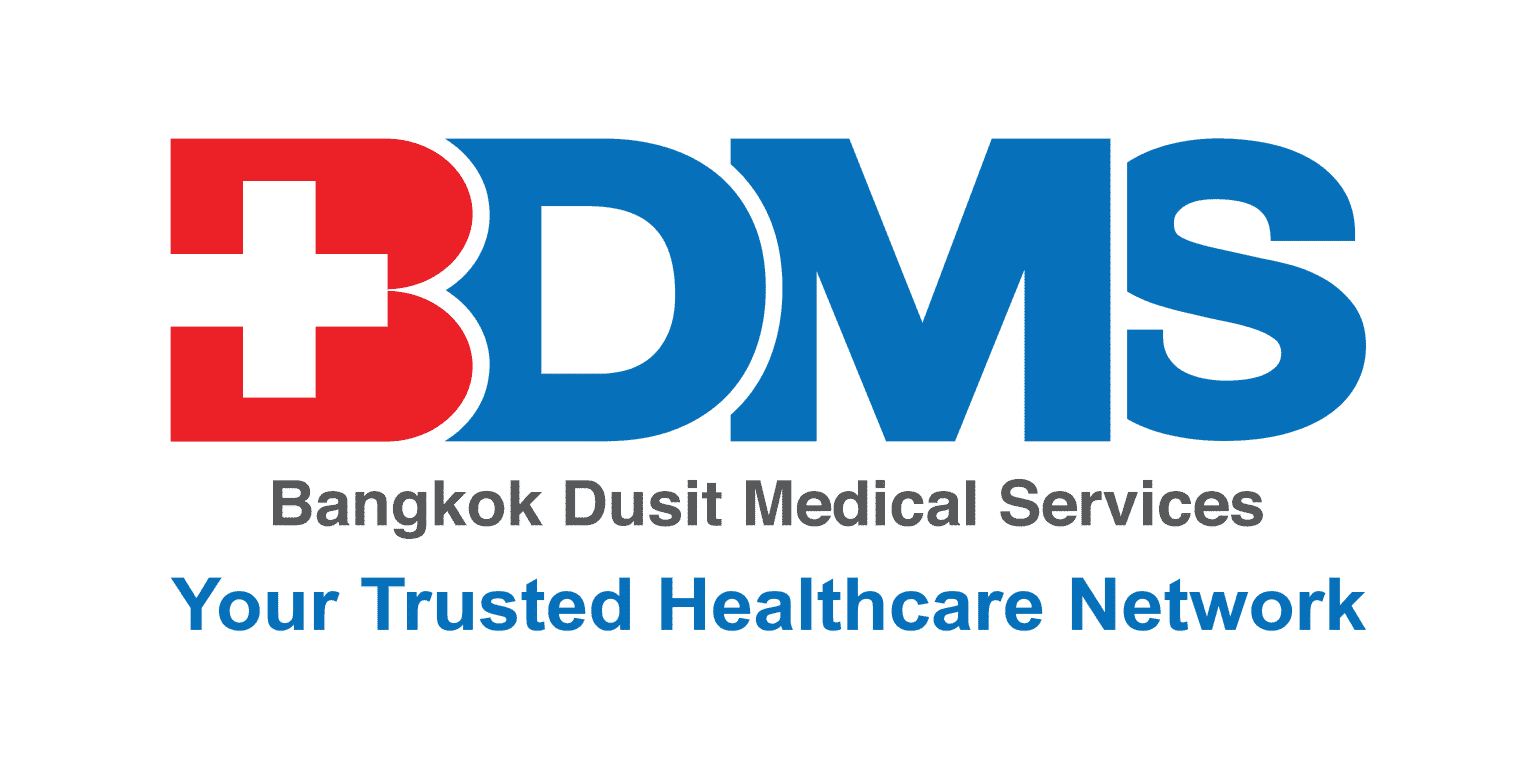Endoscopy: Not as Scary as You Think

Choose the topic you want to read:
For those who are studying colonoscopies and found that a colonoscopy is terrifying and difficult, the fact is that a colonoscopy is not as terrifying and difficult as you imagine. If you still have concerns, we have collected the typical questions we receive, including steps to prepare for your first colonoscopy, to assist in your making a decision.
1. How to prepare for a colonoscopy examination.
A colonoscopy requires preparation of the intestines prior to the procedure for maximum accuracy and effectiveness.
- It is recommended to eat light foods and refrain from eating foods that contain fibre for 2 days in advance. During the day before colonoscopy, it is recommended to eat clear liquids and foods such as rice porridge or soft-boiled rice, and patients must take laxatives to keep the intestines clean so that tumors in the intestines can be examined and complete treatment can be given.
- In the case of congenital disease and medications that require regular use, please inform your doctor to consider stopping certain medications that may affect the colonoscopy. In particular, blood clot dissolving medicine such as Aspirin, Warfarin, Ticlid, Clopidrogrel or NSAIDs (Non-steroidal anti-inflammatory drugs), vitamin E, and fish oil, which must be discontinued at least 5 days before the examination.
Many of you may not know that preparing for a colonoscopy is a very important procedure. In addition to helping see the lesions clearly, it also helps the doctor in making their preliminary diagnosis in a timely manner. Therefore, patients who undergo colonoscopy need to prepare themselves in advance for the procedure to be more effective and to receive maximum benefit.
Our BNH Hospital has a team of nurses’ gastrointestinal specialists to provide personalised care, from the preparation procedure, including preparing laxatives for you. You also have the right to consult with a gastroenterologist via video call for free before undergoing a colonoscopy.
For more information, please see “Procedure and preparation for colonoscopy”.
A colonoscopy at BNH is less painful, comfortable, and has a faster recovery, performed by a team of experienced medical professionals.
2. Is a colonoscopy painful?
This is one of the most common questions that almost all patients want to know. For a colonoscopy at BNH Hospital, we have anesthesiologists (doctors who specialize in anesthesia) who first administer anesthesia until the patient falls asleep.
Then, the gastroenterologist will begin the colonoscopy using AI technology from Japan. The patient will regain consciousness once the colonoscopy is complete. Therefore, during the colonoscopy, the patient will not feel any pain at all. In the case that a polyp or tumour is detected, they can be removed immediately and sent to be examined for further diagnosis.

3. Is a colonoscopy risky?
A colonoscopy is a procedure that is very safe. The patient will undergo a thorough physical examination and assessment of any symptoms prior to the colonoscopy to ensure maximum benefit and safety.
After the colonoscopy, most patients will not have any symptoms, but a few may experience mild distension, which resolves within 24 hours. If a polyp is removed, there may also be a chance of bleeding from the site where the polyp was removed. This is usually mild and stops on its own, as severe bleeding after a colonoscopy is extremely rare.
4. Does the preparation procedure require hospitalisation?
No need. Patients can prepare their intestines by taking laxatives at home, or if it’s not convenient, patients can come to the hospital in the morning. We have private rooms for you, including professional nurses to provide personalised care. On the morning of the colonoscopy, patients should arrive at the hospital 30 minutes before the colonoscopy time in order to prepare in advance. After the colonoscopy is completed, there will be approximately 1 hour of recovery time to monitor post-colonoscopy symptoms and closely assess your vital signs by a team of doctors and professional nurses. After patients get their examination results, they can go home.
5. What is the procedure for a colonoscopy?
The doctor will use a small, flexible tube-like endoscope with a diameter of 10 – 13 millimetres and length of 160 – 180 centimetres, equipped with a magnifying lens and a light at the end. The doctor will slowly insert the endoscope through the anus, large intestine, and into the small intestine to check for abnormalities in the intestinal wall. It takes approximately 30-45 minutes, and if abnormalities or lesions are found in the large intestine, the doctor may take a biopsy for further pathological examination and remove tumors that are not too large.
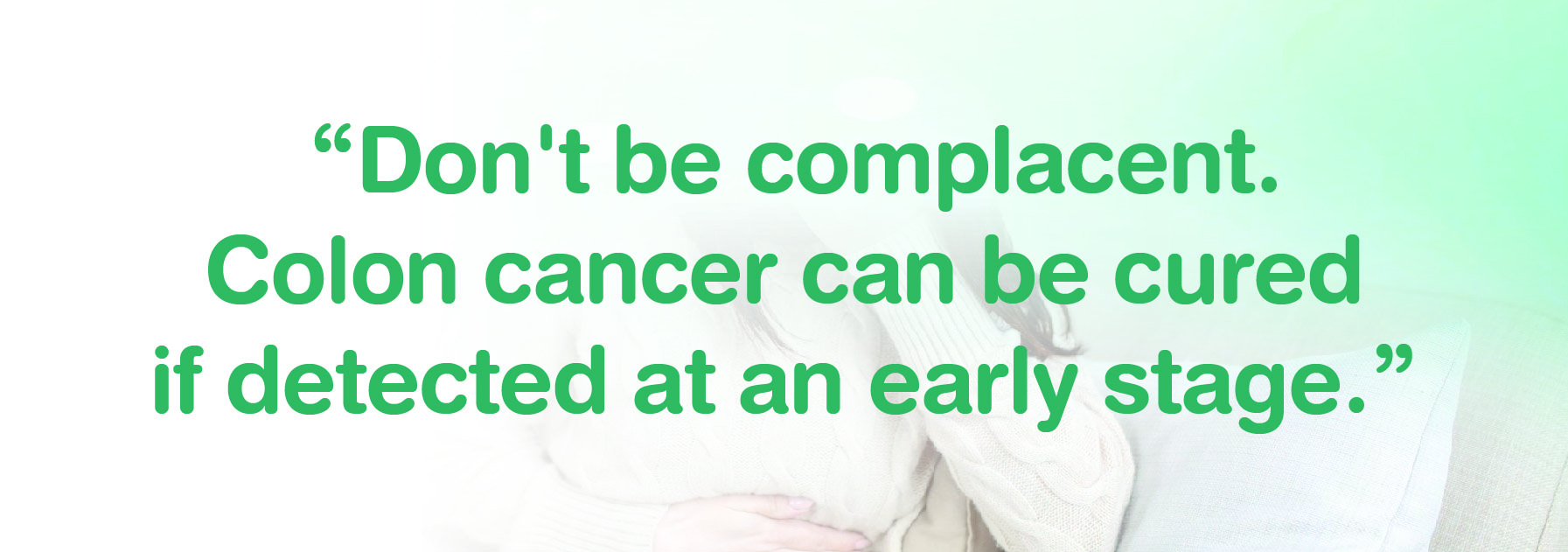
6. Why a colonoscopy?
Colon cancer, a type of cancer that occurs at the end of the gastrointestinal tract, is one of the most dangerous cancers which often comes without warning. According to public health statistics 2020, it was found that colon cancer is the second most common cancer in males after liver cancer, and the third most common in females after breast cancer and cervical cancer. Therefore, experts usually recommend that people aged 45 years and over undergo a colonoscopy, even if there are no abnormal symptoms.
Suspected symptoms of colon cancer include loss of appetite, unexplained weight loss, bloody stools, constipation, abdominal pain caused by intestinal obstruction, and a lump found in the abdomen, but many patients or those in high-risk groups tend to avoid colonoscopies because they fear that colon cancer will be found.

In fact, those without such symptoms are less likely to have cancer cells. Most often, polyps or tumours that have not yet turned into cancer cells are found. Regular colonoscopies and polyp removal can therefore reduce the incidence of colon cancer that may occur in the future.
Early colonoscopies are far better than a colonoscopy only when symptoms start to appear, because if it is found to be in the advanced stage, it will be more difficult to treat.
Many of you probably know the dangers of colon cancer when detected at an advanced stage. It is best to have an examination before it is too late because colonoscopies are not as terrifying as they seem.
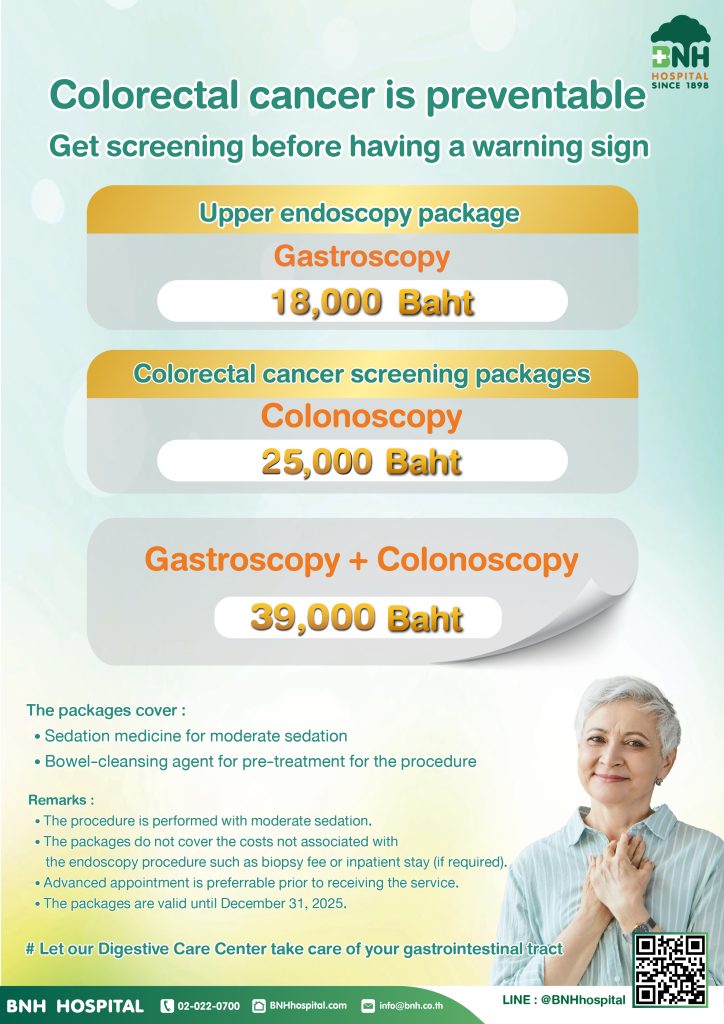
"Let our Digestive Care Centre take care of your digestive tract."
Gastroscopy & Colonoscopy Package
Another dangerous cancer that often appears without warning signs is colorectal cancer.
” Don’t be complacent! Colon cancer can be cured if detected at an early stage. “
Gastroscopy 18,000 THB
Include
- Doctor’s fee for gastroscopy
- Endoscopy room fee
- Preparation room fee
- Laxative medication fee
- Anesthesia fee (sedation)
- Medical equipment and instrument fee
- Hospital service fee
Colonoscopy 25,000THB
Include
- Doctor’s fee for colonoscopy
- Endoscopy room fee
- Bowel preparation room fee
- Laxative medication fee for bowel preparation
- Anesthesia fee (sedation)
- Medical equipment and instrument fee
- Hospital service fee
- Recovery room fee
Gastroscopy + Colonoscopy 39,000THB
- Doctor’s fee for gastroscopy
- Doctor’s fee for colonoscopy
- Endoscopy room fee
- Bowel preparation room fee
- Laxative medication fee for bowel preparation
- Anesthesia fee (sedation)
- Medical equipment and instrument fee
- Hospital service fee
- Recovery room fee
- Please make an appointment in advance.
- This price includes doctor fees and hospital service fees.
- This package includes an anaesthesia for the endoscopy (moderate sedation).
- This package does not include a general anaesthesia fee conducted by an anaesthesiologist, if required.
- This package does not include additional fees other than for the endoscopy itself, such as additional biopsy tests, room and board in the case of inpatient stay (admission), and medication and treatment of other illnesses.
Service Location: Digestive Care Centre, 3rd Floor, Zone B, BNH Hospital
Operating Hours: Monday–Sunday, 8:00 AM–5:00 PM.

